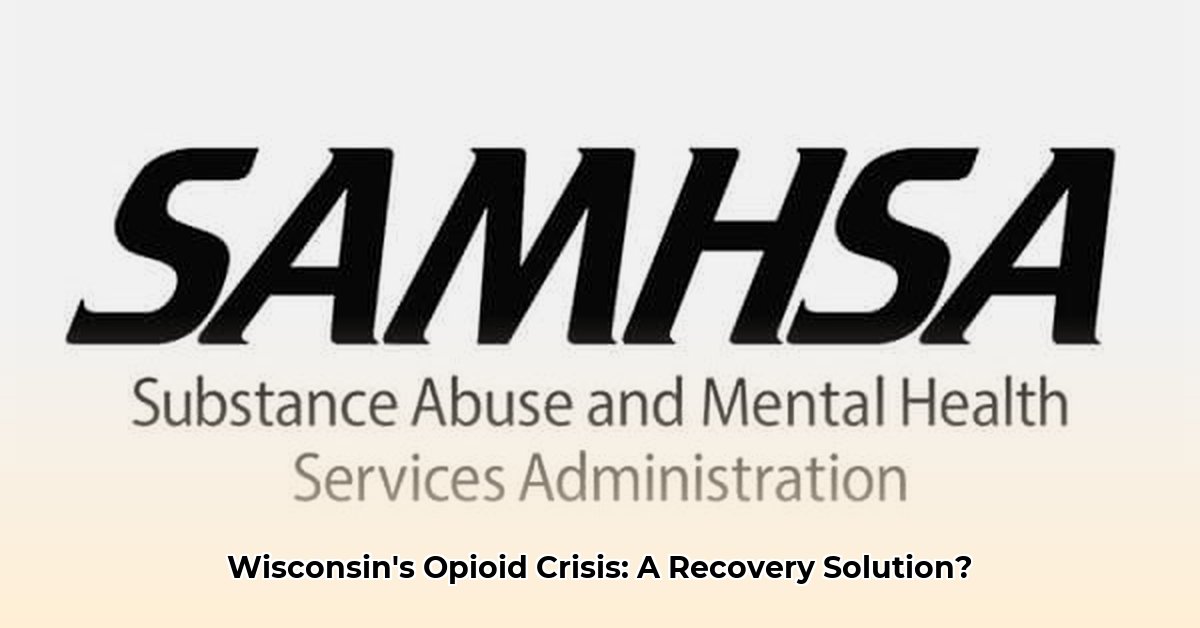
Understanding the Opioid Crisis in La Crosse County
La Crosse County, Wisconsin, continues to grapple with the opioid crisis, although recent data shows a slight decrease in overdose deaths, from 29 in 2017 to 25 in recent years. This reduction, while encouraging, doesn't signal an end to the crisis. Addressing the complex issues surrounding opioid addiction requires a multifaceted approach that goes beyond simply tracking mortality rates. How can the community build on this progress and develop more comprehensive solutions? For more information on recovery centers, see this helpful resource.
The Crisis Beyond the Numbers
A simple reduction in overdose deaths obscures the complex realities faced by individuals and families struggling with addiction. Understanding which specific opioids are most prevalent, who is most at risk within the community, and the underlying social and economic factors contributing to opioid use disorder are crucial steps in developing effective strategies. AMS of Wisconsin in Onalaska, a key player in local recovery efforts, provides valuable insight into these challenges.
AMS of Wisconsin: A Local Response
AMS of Wisconsin in Onalaska offers a "guest dosing" service, providing a supervised environment for individuals to use substances. For a daily fee of $20, plus a $25 administrative fee, this service aims to reduce overdose risk. However, challenges remain. The current process, involving home clinic visits, faxed documents, and 24-hour notice, creates barriers to access, potentially hindering individuals in immediate need. This raises critical questions: Is the current system effectively reaching those who need it most? How can the process be streamlined to improve accessibility and effectiveness?
A Multi-pronged Approach to Combating the Opioid Crisis
Addressing the opioid crisis effectively necessitates collaboration amongst various stakeholders, each playing a unique role. Here's a breakdown of strategies, focusing on immediate and long-term goals:
1. Enhancing Data Collection and Analysis: The La Crosse County Health Department should prioritize improving data collection methods to gain a clearer picture of the crisis's evolution and understand which interventions are proving most effective. This improved data will allow for more precise resource allocation.
2. Expanding and Optimizing Medication-Assisted Treatment (MAT): MAT programs combine medication with counseling and behavioral therapies to treat opioid use disorder. Expanding access to these evidence-based treatments is crucial. Furthermore, evaluating existing MAT programs' effectiveness will help refine strategies and optimize outcomes.
3. Streamlining Access to Guest Dosing Services: AMS of Wisconsin should work towards simplifying the guest dosing process, reducing bureaucratic hurdles. This might involve improving communication, reducing paperwork, and exploring alternative models for service delivery. Is it possible to incorporate virtual communication and online referrals to increase speed and convenience?
4. Fostering Community Engagement: Meaningful community involvement is paramount. Engaging community members, particularly those directly affected by the opioid crisis, is essential for developing effective, culturally sensitive programs. This collaborative approach ensures alignment with community needs.
Risk Assessment and Mitigation
Effective crisis management requires proactive identification and mitigation of potential risks. These interventions, while aiming to treat people, could still lead to problems.
| Intervention | Potential Problem | Likelihood | Severity | Mitigation Strategy |
|---|---|---|---|---|
| Guest Dosing Services | Limited Access | Moderately Likely | Moderately Serious | Streamline referral process; improve clinic communication; expand service locations |
| MAT Programs | Adverse Drug Reactions | Unlikely | Very Serious | Rigorous patient monitoring; experienced healthcare providers |
| Community Outreach | Funding Shortfalls | Moderately Likely | Moderately Serious | Diversify funding sources; explore grant opportunities; demonstrate program efficacy |
| Data Collection Initiatives | Privacy Violations | Unlikely | Very Serious | Strict adherence to HIPAA regulations; robust data security measures |
Regulatory Compliance
Strict adherence to state and federal regulations concerning controlled substances is paramount. AMS of Wisconsin, along with other service providers, must maintain meticulous records, ensure compliance with prescribing guidelines, and prioritize patient safety. Regular reviews of regulations are necessary, and open communication with regulatory bodies is crucial.
By implementing these strategies and collaborating effectively, La Crosse County can strengthen its response to the opioid crisis, improving recovery support services and creating a healthier future for its residents.